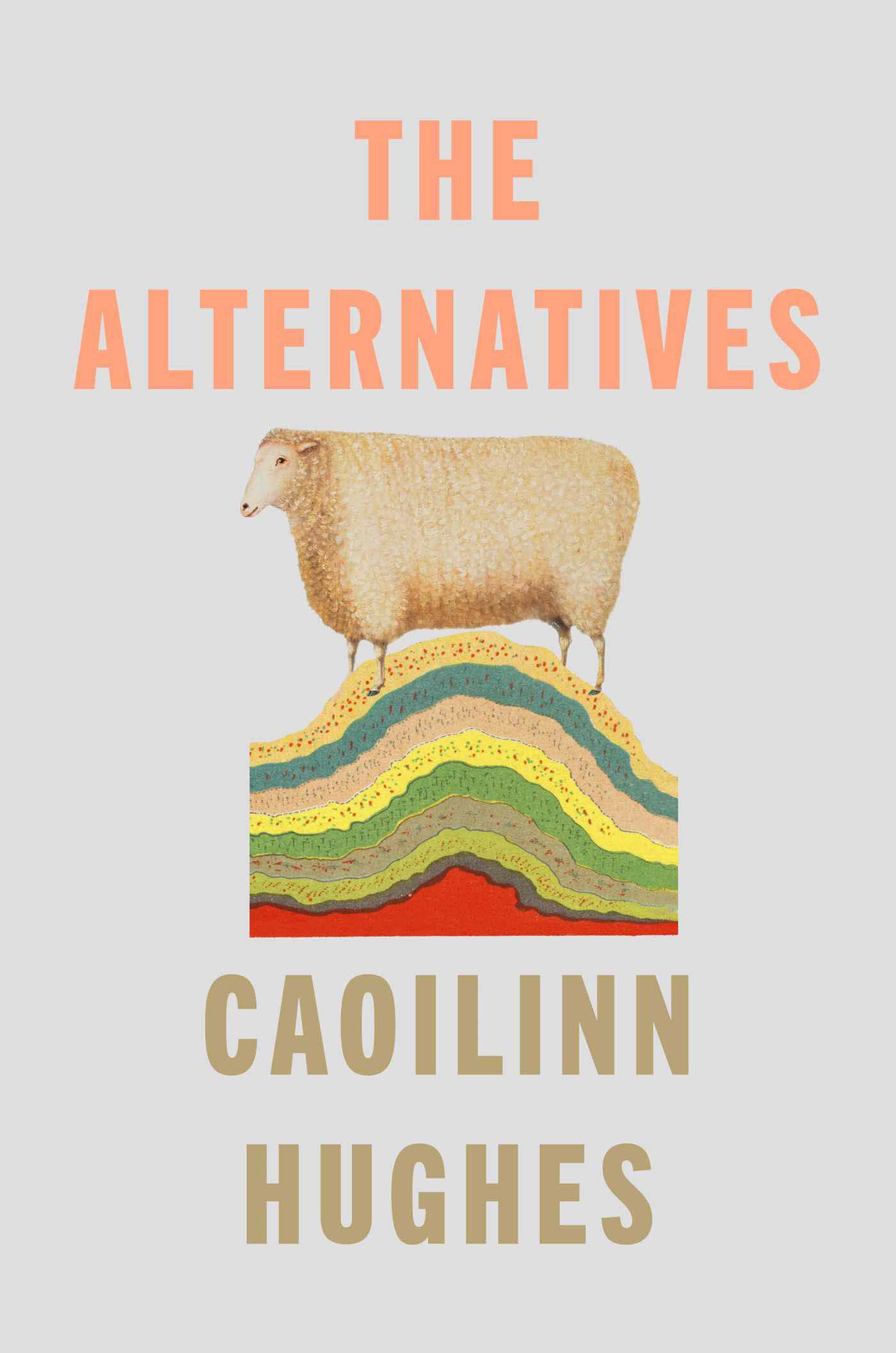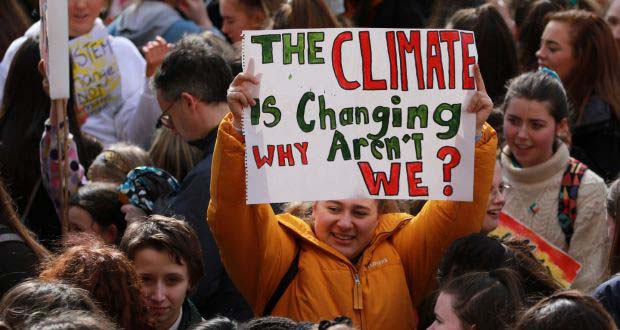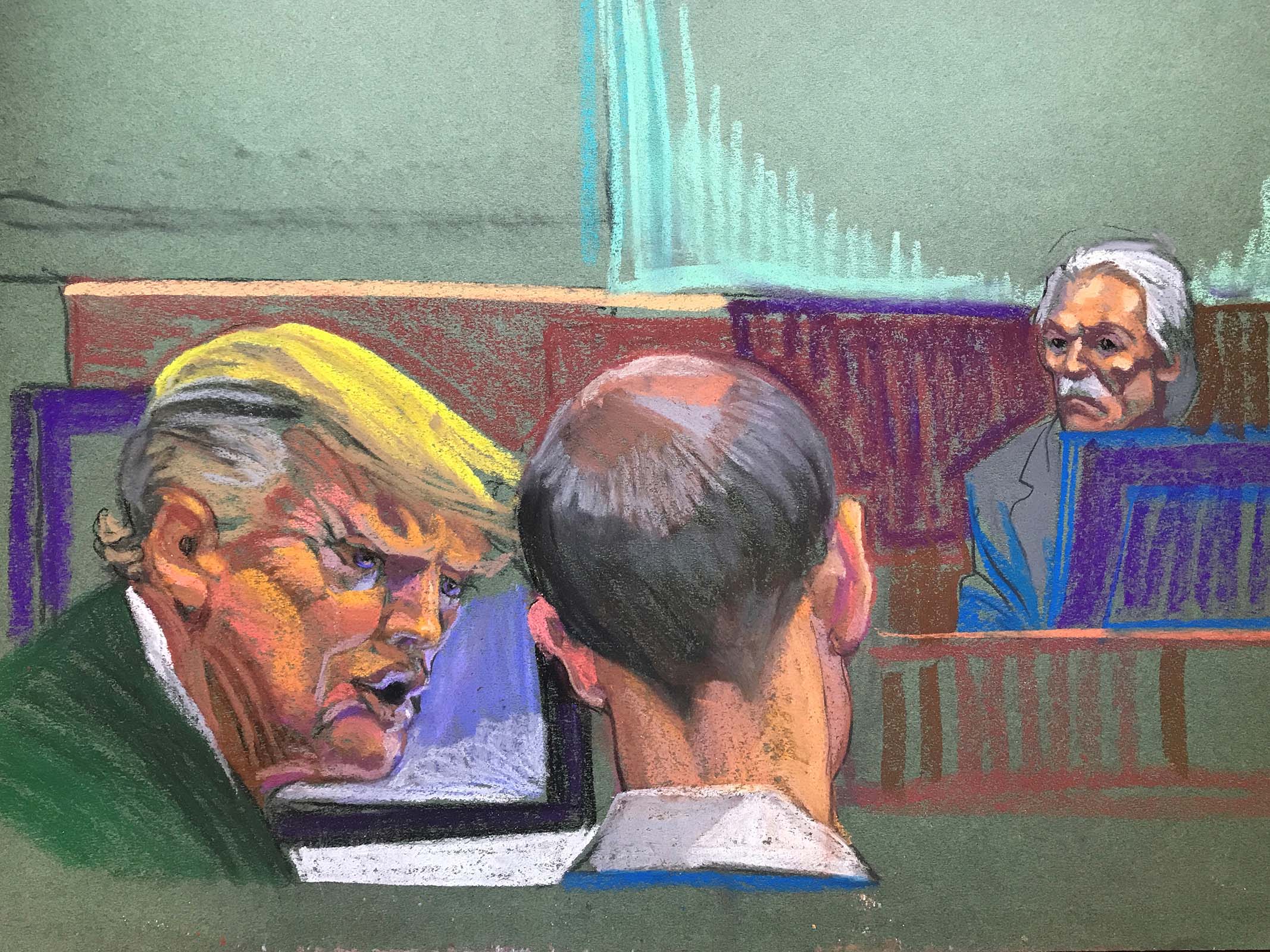- Culture
- 28 May 24
Caoilinn Hughes - "How we think about the future is so different to how our parents thought about the future"

The latest novel from the award-winning Caoilinn Hughes, The Alternatives, focuses on a geologist whose despair over the climate crisis causes her to disappear. The author discusses our tumultuous times, family dynamics and the lyrical brilliance of Alt-J.
In Caoilinn Hughes’ third novel, The Alternatives, geologist Olwen is haunted by the climate crisis, which along with the scars from her parents’ premature deaths, causes her to disappear. Having been tracked down by her three sisters to a house in rural Ireland, the scene is set for an intense, but still funny, family drama where old wounds are tended to.
Of course, Olwen’s grappling with climate change will resonate with many of us, in a time when the issue grows ever more grave.
“I suppose it’s not the sexiest topic to include in a novel,” considers Hughes from the New York Public Library, where she’s currently completing a Cullman fellowship. “But at the same time, I don’t think you can really avoid it anymore, unless you’re writing something historical. There’s the cliché that all writing starts with descriptions of weather, and often ends with weather, looking towards the light. But there’s no neutral way of describing it at the moment.
“It’s just contemporary realism and it would be strange not to include it, in a way. Maybe it would be more horrible and depressing to deny it. There’s something consoling about facing up to the moment we’re in, or at least I find that.”

Did Hughes have a specialist knowledge of geology?
“I grew up in Galway and actually wrote a good portion of the novel in Connemara,” she explains. “I’m very biased, but it’s one of the most beautiful places in the world, a really emotionally resonant place for me. It’s wild and dynamic, but it also seems unchanging and immovable. When I started writing Olwen, it seemed like she came out of the landscape in a way. You have limestone shouldering through the fields, and all these wind-stripped, low-lying hills.
“There’s saturated expanses of peat shifting underfoot – there’s no waiting for good weather, you just get out in it. There was no conscious choice, it felt very natural for the central character to be a geologist. It’s such interesting, existential work. Obviously, it’s within the realm of the earth sciences.
“Once upon a time, I would have found that a very romantic life, but it’s very hard to be romantic about scientists when you’re reckoning with natural hazards, dwindling resources and degraded topography. So, Olwen is struggling to hold steady, and I did have a sense I was writing about someone who was tied up in the existential ropes of the climate crisis.”

CHARGED RELATIONSHIPS
It’s perhaps surprising that, so far, we haven’t had a proper mass political protest movement around climate change. Voters are probably more open to concrete measures, such as limiting their flying time, than politicians generally give them credit for.
“There’s been disastrous science communication on what needs to be done,” says Caoilinn. “People fret over whether they should be buying local tomatoes or not, and not registering that meat and dairy really need to go. People have the desire to do something, but there’s been a lack of clarity about the most effective measures.
“Maybe that’s hopeful, in that if the media starts to platform more specialists, as opposed to other people, then there can be a very rapid change.”
As we’re speaking, the circus of the Donald Trump hush money trial is also taking place in New York. As embodied by Trump, climate change scepticism has become mainstream political thought amongst the American right, and to say the least, that represents a considerable obstacle to change.
“Beyond the geologist and climate aspects of the book, there is also a political scientist,” says Hughes. “Her work is towards direct democracy. In terms of politics in the US and UK, I can’t help thinking the number one point of conversation should be about proportional representation. That would help the country heal so many of the binaries and the polarisation, which has been cannibalising the country.”

The author notes how the starkness of the climate crisis has contributed to the ominous tenor of the times.
“I do feel how we think about the future now is so different to how our parents thought about the future,” says Hughes. “There is more general pessimism than ever before. So I’m thinking about how individuals deal with that species-wide phenomenon. It’s not just about the environment, it’s also about weakening democracies, and the dehumanising, siloing effect of ungoverned capitalism.
“You mentioned denial, and despair is one way to respond, but there is a big spectrum. You have people seeking social support, and making community connections, or engaging in pro-environmental behaviours – for example, switching to a plant-based diet or reducing your flying. I can’t cite the evidence now, but there are studies to show that the tipping point for change in society requires a very small percentage of the population to get out onto the streets.”
ELECTRONIC MUSIC
Of course, there is also considerable humour in the book.
“I was struck when I started writing about Olwen that she had big sister vibes,” Caoilinn reflects. “My initial impulse was to write about women at work, expressing themselves through their professions. Then it struck me that a book about women at work could also be a book about family. I did love the idea that a story of sisters could also involve a geologist, a philosopher, a political scientist and a chef – walking into a bar! (laughs) I definitely did want there to be humour in there.
“Even just the fact of them all being single struck me as quite funny. Because family doesn’t only exist in that domestic realm. We go about our lives thinking about ourselves in many other ways than as a sister or daughter. I keep being drawn back to writing about adult siblings. I just find it comes with latent questions around who chooses to stay connected and why.
“There are also questions around how you negotiate those really charged relationships, and how adult siblings bridge chasms in their belief systems – or fail to. And how people from a similar background can end up in far-flung scenarios, fighting very different battles.”
Some notable individuals thanked in the acknowledgements of The Alternatives, including actor Chris O’Dowd – who read the audiobook of Hughes’ previous novel The Wild Laughter – and recent Hot Press interviewee David Nicholls, whose novel One Day was the basis for the recent Netflix smash series.
“He’s such a gent,” Hughes enthuses. “Talk about people in the writing community going out of their way to support other authors – he blurbs so many books. During Covid, he started it as an exercise for a couple of weeks. But I think that he did it for well over a year; once a week, he would read and post about debut novels coming out. That must have meant so much, because it’s so hard to find readers for any book.”
Finally, with Olwen’s partner being described in the book as a fan of house music, I wonder if Hughes herself is a big music fan?
“I love music,” she replies. “I do really listen to a disproportionate amount of electronic music, because if the music has very obvious lyrics, I need to just sit down and listen to it. I can’t do anything else – I can’t even clean the house if there’s music with good lyrics.”
Who’s your favourite lyricist?
“Just yesterday, I was listening again to this Alt-J album,” says Caoilinn. “It has this line, ‘Like all good fruit / The balance of life is in the ripe and ruin’. I love that.”
• The Alternatives is out now.
RELATED

- Pics & Vids
- 24 May 22
Alt-J supported by Wilderado at the 3Olympia (photos)

- Culture
- 23 May 22








